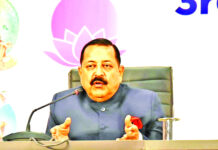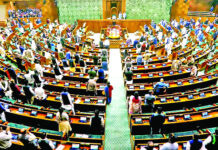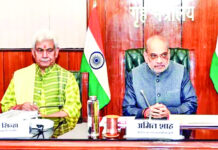A huge jump in penalties under the amended Motor Vehicles Act may look a bit extreme but needs to be done
We are often told that India’s strength lies in its diversity but if there is one thing that binds the country and its citizens together, it is not cricket. It is the near universal contempt people have for the rule of traffic laws. Other than a couple of islands of relative order such as Chandigarh, traffic rules are meant to be ignored across the country. Not wearing helmets and triple riding aren’t isolated events; they are rampant throughout the length and breadth of the country. We all know how much Indians love to talk or read their text messages. They like it so much that no matter where in the country one would go, he/she will easily find an imbecile or 10 happily chatting on their mobile phones instead of paying attention to driving. Other violations such as jumping a traffic light or driving on the wrong side of the road or even drinking and driving are so far down the list of priorities that they barely feature in the mind of Indian drivers. No wonder India accounts for the highest number of road deaths in the world, according to the International Road Federation (IRF). At present, India accounts for 10 per cent of global road accidents with more than 1.46 lakh fatalities annually, shamefully the highest in the world.
We can wring our hands all we want at this situation and say that something must be done about it but we do not internalise the need for correctives. Which is why the Government came up with the newly-amended Motor Vehicles Act. With fines for traffic violations shooting up, it hoped the fear of high penalties would persuade people to follow the law. However, some States, notably Rajasthan, Madhya Pradesh, Gujarat and West Bengal have cribbed about the new fines and have refused to notify the Act. One reason the States have mentioned, if not officially, is that they feel that higher fines will lead to a massive rise in corruption and collusion with the booking officer. Sadly, with most of India’s police forces corrupt to the core, their fears are justified. However, one can hope that some discipline will spread among the police, particularly in metropolitan areas, what with the Delhi and Mumbai traffic police having already orchestrated successful crackdowns on unlawful driving. And the other major lesson that the traffic police can take away is technology. The use of cameras and automatic numberplate readers has already massively impacted the issuance of traffic fines. With most new cars featuring radio-frequency chips that can also be read, this system will only get better. While it is impossible to hope that without drastic reform, corruption and incompetence can be expunged from the police, one can hope that increased automation and better cameras and linkage of driver to vehicle data will indeed raise road safety standards. Privacy advocates might raise a hue and cry but the possible use of Aadhaar information to bring a sense of order on the roads is not a bad thing. Therefore, States are not in order to refuse notifying the new Motor Vehicles Act. It is petulant Opposition politics combined with States rights issues in some cases and stupid populism in others. The chaos on Indian roads forms an international image of India and it is not a good one. In 2017, there were more than 1,47,913 road accident related deaths, up from 1,46,133 in 2014. Among categories of vehicles, two-wheelers accounted for almost 34 per cent of total road accidents and 29 per cent in terms of fatalities, official data showed. Besides, national highways that comprise two per cent of India’s total road network, accounted for over a third of accident-related deaths in 2017. These higher fines are in the end the less drastic solution. A complete overhaul of the way driving licences are issued may be needed otherwise. So let’s not sympathise with the motorist who had to cough up Rs 23,000 as fine in a single day.




























